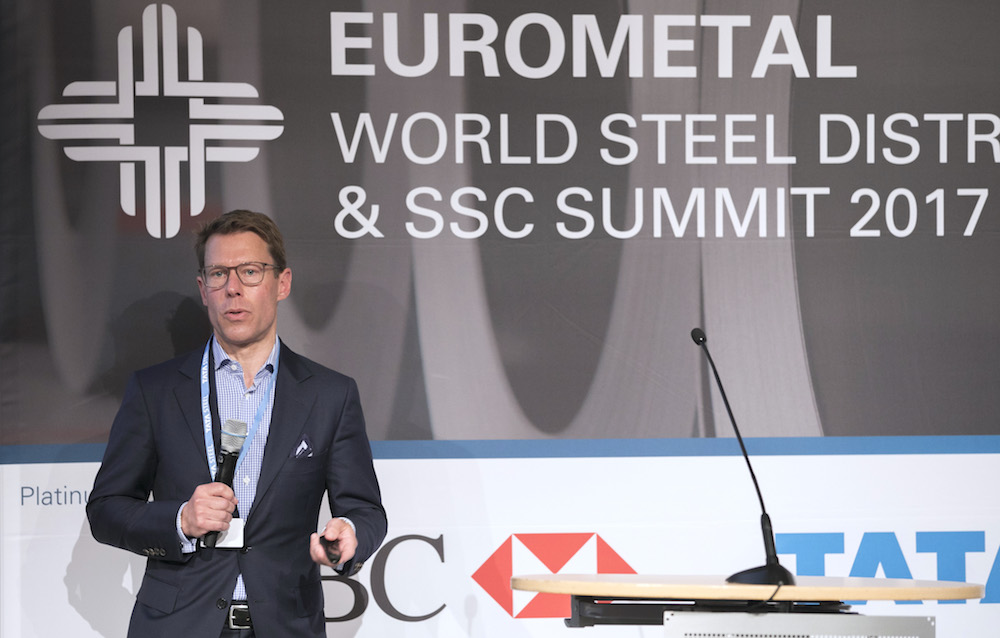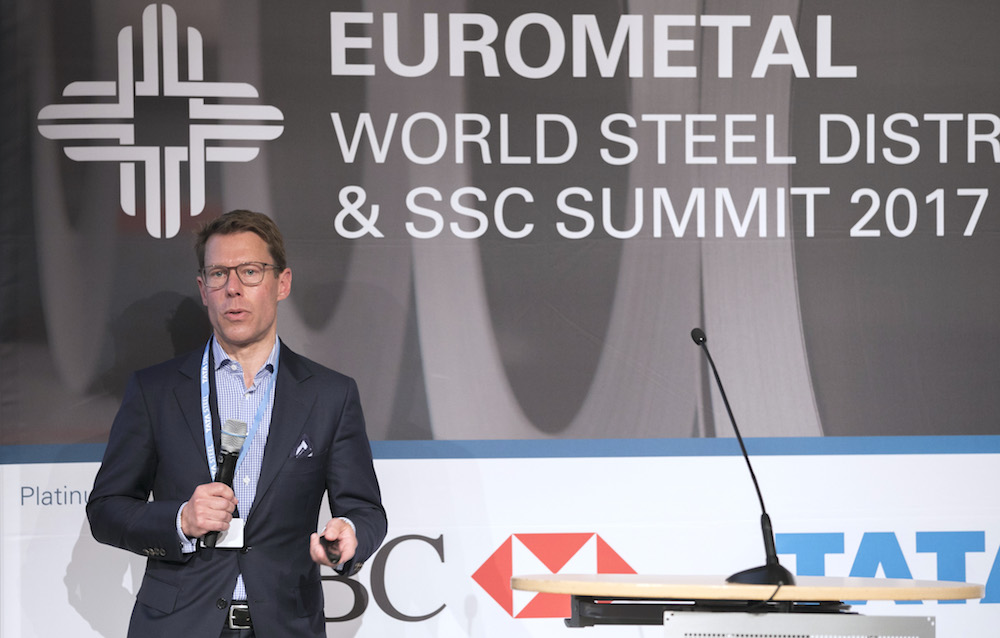
European import buyers purchased a lot of strip material from established suppliers China and Russia in the fourth quarter of 2016, despite ongoing anti-dumping duties and imposed duties, Alexander Julius, CEO of Macrometal, said at the EUROMETAL World Steel Summit conference in Dusseldorf Thursday.
“Despite accusations and ongoing accusations, imports have increased dramatically for metallic coated flats,” he said. As domestic suppliers were eyeing increases in the second half of the year, buyers turned to Russia and China to cover their requirements in the event of further increases, he said.
In fact, buyers bought more material than required, resulting in currently high stocks throughout Europe, he said.
While trade measures help create a level playing field, “excessive” action cause an uncertain environment for steel-using industries, according to Julius: in its current investigation into HRC imports from Brazil, Iran, Russia Serbia and Ukraine, the European Commission refused to impose provisional duties that would harm end-users.
“Established sources such as Russia cannot easily be substituted. They have become an integral part of EU manufacturers’ business model and competitiveness,” he said, suggesting import sources are essential as domestic mills are not prioritizing commodity grades.
“How can European manufacturers make a proper business planning with uncertain availability?” he asked, drawing up a worst case scenario in which manufacturing would have to partly move out of the EU.
Julius also questioned whether hot-dip galvanized tonnages from investigated countries could be supplied by domestic mills at competitive “transparent” price levels, pointing to the current move by mills towards effective pricing by removing extra price lists and giving a “custom-made” price. “It is very difficult for end-users to know where these effective prices are coming from,” he said.
He also alluded to defense measures elsewhere, such as the US, hurting European exporters. “We don’t only have a problem with imports, but also with exports.”
Laura Varriale, S&P Global Platts





